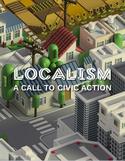Twenty-one businesses have closed in less than two years since the city of Los Angeles reconfigured a 0.8 stretch of Venice Boulevard in the west side’s Mar Vista neighborhood. The city replaced one of three traffic lanes in each direction with protected bike lanes, removed some street parking, and installed physical barriers. The project is called a “road diet” and it’s part of the city’s “Vision Zero” and “Complete Streets” programs. read more »
Small Cities
When it Comes to Road Diets, Small Businesses are the Biggest Losers
- Login to post comments
From Madera and Joplin to New York: Dispersed, Not Dense Urban Areas Dominate GDP
For some time, the mainstream press and conventional urban planners have been obsessed with a “dense urban” narrative. This is largely a myth, as has been demonstrated by resurgent growth in suburbs and exurbs. read more »
- Login to post comments
Localism: A Call to Civic Action
If you ask an American to tell you about their country, they’ll probably paint a bleak picture. Civic bonds are fraying. Division and tribalism dominate the news. The public is losing faith in democracy as the most effective way to govern. At a time of rapid demographic and cultural change, with frustration over economic inequality reaching a boiling point, our national politics has not found a way to generate consensus. read more »
- Login to post comments
Bremerton, Washington: Challenges of an Industrial Town
Recent statistics from Indeed.com show that Washington, DC, the winner of the HQ2 contest, ranks second only to San Jose in the percentage of high-tech job listings. This tells us that most of the 238 cities that submitted bids --- despite assurance from Amazon --- were never seriously in the running. If mid-sized places like Indianapolis did not really stand a chance, however, what does that tell us about the economic prospects for smaller, more industrial places that have virtually no software companies? read more »
- Login to post comments
The Plight of the Midsized Midwest Industrial City
Bloomberg’s Justin Fox tweeted out a link to this piece from a professor in Peoria, Illinois who left a coveted tenure-track position because he couldn’t bear the thought of living there. Here’s an excerpt: read more »
- Login to post comments
Why Are Some People in the Rust Belt So Resistant to Change?
Aaron Renn wrote a great piece over at his Urbanophile blog entitled The Challenge of Change. In it, he discusses some of the negative reaction that he got to his recent post on Kokomo, Indiana and its Mayor Greg Goodnight’s efforts to reinvent the city using what Renn describes as “the model of the working-class/creative-class, blue-collar/white-collar synthesis that many believe we need today.” read more »
What Can We Do For America's Most Challenged Cities?
My latest Manhattan Institute study was just released, discussing the particular difficulties facing America’s most distressed cities. Post-industrial metro areas with less than one million people that have experience significant decline are in a different category than other places. read more »
- Login to post comments
The Captain Hindsight Award
A reader recently made a comment I took seriously:
“I am certainly not here to try and refute much of what you have brought to light, only to suggest that your comments are not in the least bit constructive on the whole. That is why I have decided to pin you with the prestigious “Captain Hindsight” award.”
This post is my response. read more »
- Login to post comments
Small-Town America Measures Up to Have Big-Time Potential for Economic Growth
As American as baseball, hot dogs and apple pie, Main Street America - and its small towns - is a central component to understanding the economic forces at work across the United States. Dotting the U.S. map – in the Heartland and beyond – are 531 small towns, better known as micropolitan statistical areas, which comprise of one or more counties with at least one city with more than 10,000 but less than 50,000 in population. read more »
- Login to post comments
Blaming Workers Again
Working-class people often get blamed for their troubles. They should have planned better, been less demanding, or just been smarter. Those are just some of the judgments that surfaced again in the weeks after General Motors’ announcement late in November that it would close five plants in the U.S. and Canada, leaving thousands of workers without jobs. read more »






















